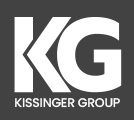Leading a large-scale organizational change is a lot like hosting a dinner party. While hosting a good dinner party involves planning the menu, setting the table, and making sure everyone feels comfortable and involved, guiding a transformation requires careful preparation, clear communication, and the ability to bring people together. With thoughtful planning, the experience is not just smooth—it’s something everyone can enjoy and appreciate.
Overseeing a big change in your organization isn’t just about leadership; it’s about bringing everyone along for the journey and making sure they feel included and supported. But even the most accomplished leaders can find this challenging, which is why having a solid plan and practical tips can be invaluable. We’ve gathered top insights from Ogbe Airiodion, an expert in Organizational Change Management (OCM) at Kissinger, who shares seven practical approaches for smooth transitions and lasting success with large change programs.
Establish a Methodology That is Used Across the Organization
Having a well-defined methodology gives you a solid foundation to guide all your initiatives, offering a standard framework, toolset and language. It’s important that your methodology is flexible enough to adapt to different types of projects while remaining repeatable across various initiatives. Widely recognized frameworks like Prosci’s ADKAR model offer structured approaches as well as certification programs. Some companies prefer to develop their own proprietary methodologies tailored to fit their specific organizations, such as General Electric’s Change Acceleration Process (CAP). Whether you choose a well-known framework or a customized approach, make sure your methodology is both strong and adaptable – and most importantly, use it consistently.
Engage Change Management from the Start
Incorporating change management right from the beginning of an initiative is essential for success. Change managers should be involved as soon as the project is defined to assess its impact, plan engagement activities, and ensure smooth implementation. As the program kicks off, it’s helpful to have a strategic playbook in place—one that clearly outlines your communication, engagement, and training strategies, along with a step-by-step plan for executing each part of your strategy.
Choose Leaders with Proven Change Management Experience
Change management is not an academic exercise. While certifications in change management are valuable, important initiatives call for change leaders with real-world experience. Those who have successfully navigated multiple change initiatives can better anticipate challenges, adapt strategies on the fly, and leverage a wealth of insights and best practices to boost adoption and drive success.
Conduct Assessments Early and Often
Assessments are foundational to any successful change management strategy. Start by conducting risk assessments, identifying potential resistance, and analyzing stakeholder impact as early as possible. The earlier you assess, the better you can tailor your strategy and create a comprehensive change management playbook that tackles challenges before they turn into obstacles. This process is all about gauging the organization’s readiness for change and spotting areas where resistance might arise.Clearly Communicate the Benefits
To get people on board with change, you need to give them a compelling reason to embrace it. Your communication plan should go beyond simply informing employees about the change—it should help them see the benefits and understand what’s in it for them. By delivering clear, consistent messaging and highlighting the advantages, you can ease concerns, lower resistance, and build strong support for the change.
Build a Change Champion Network
Change champions are influential individuals within the organization who advocate for the change at the grassroots level. They play a crucial role in supporting change by influencing peers, addressing concerns, and fostering a positive attitude toward the initiative. To develop a change network, identify and empower individuals who are respected within the organization and who can serve as role models for the desired change. By leveraging their influence, you can create a more supportive environment for the change, making it easier to implement and sustain over time.
Allow Time for Proficiency Building
The normalization phase is about reinforcing the new behaviors and ensuring that the change is sustained over time. After training employees on the new ways of working, give them time to build proficiency. Providing follow-up support and coaching is key to helping them feel comfortable and confident in their new roles. This ongoing support not only solidifies the change but also helps prevent slipping back into old habits. By regularly checking in with individuals and teams, you can ensure they have the skills and confidence needed to thrive in the new environment.
Conclusion
Leading organizational change is no small feat, but with the right strategies, it can be managed effectively and successfully. By establishing a solid methodology, engaging change management early, selecting experienced leaders, and conducting thorough assessments, you lay the groundwork for a smooth transition. Clear communication of benefits, building a supportive change champion network, and allowing time for employees to build proficiency are equally crucial in ensuring that the change takes root and thrives. These approaches not only help in overcoming resistance but also pave the way for lasting success. Embrace these strategies, and you’ll be well-equipped to guide your organization through any transformation with confidence and clarity.
——————————————————————————————————————
Kissinger Group is a boutique consulting firm that empowers organizations to lead transformative change, delivering lasting value and impact.

Meet The Author
Ogbe Airiodion is a senior organizational change management consultant with Kissinger Group, focusing on structural change, ways of working and technology adoption.


